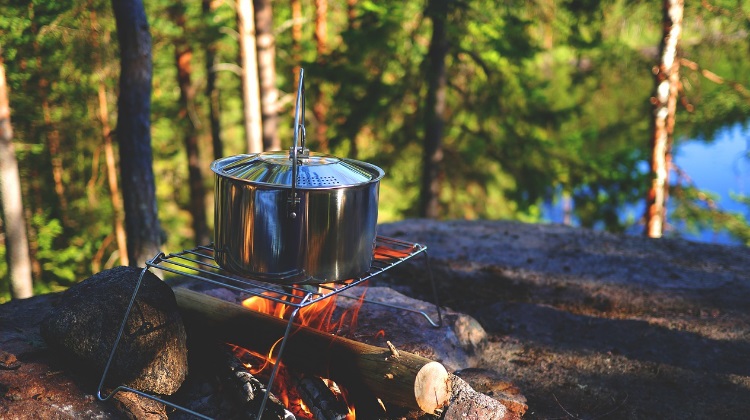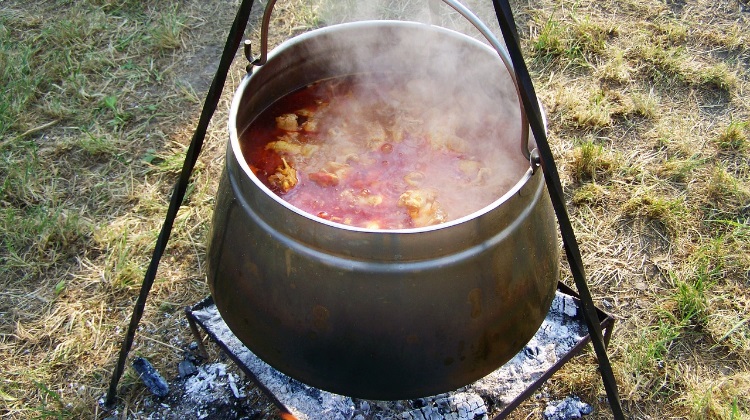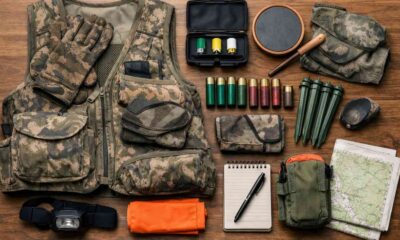Camping & Survival
Cooking Done Right— Tips You Need To Know
The outdoors is more than just about the wilderness and all that it has to offer.

It’s about keeping your humanity intact while surviving the nature’s obstacles and one of the biggest obstacle that you will find is that with food. Fruits and vegetation is comparatively easier but you’ve been granted taste buds for a reason. Supposing you’ve hunted your feast for the evening but you really can’t eat it raw then what do you do? Don’t worry, you’ve come to the right place, here you’ll get 5 Survival Cooking Tips which you cannot possibly avoid.
Survival cooking done right
When it comes to cooking in the wild, you need to first understand just how different it will be. Here are 5 Survival Cooking Tips that you need to be aware of:
Cooking Tip #1: Lids of pots and pans must stay on at all times

One of the most important tips that you must know about cooking out in the wild is how to do it efficiently. One of the factors is that you’re low on time and you need to preserve as much fuel as you can. You can do this by making sure all the lids of your pots and pans remain screwed on. This allows the food to cook much faster as well as significantly allows you to preserve cooking fuel. Did you know that crockpots were originally built on this idea? It really puts a new perspective to cooking, doesn’t it?
Cooking Tip #2: If you’re cooking eggs, use salt water

You must have often come across this tip, it’s known to be the most famous amongst the 5 Survival Cooking Tips. Using salt water to cook eggs is effective because:
- The eggs are known to cook much faster since salt is known to increase the water’s boiling point. That means the egg will only end up being in a water that’s much hotter than normal.
- You wouldn’t have a difficult time peeling the eggs since salt water is known to coagulate the member better. This allows the shell to separate away with much more ease than normal.
Next time you decide to boil eggs when you’re out camping, always remember to keep salt with you at all times!
Cooking Tip #3: Potatoes are not only delicious, they’re good for reducing excess sodium as well

If you’re used to eating canned food, then there’s really no problem with that but it often contains excess salt in it. This is known to not only taste quite terrible but it also significantly raises your blood pressure which has terrible effects on your health. To overcome this, you can use slices of potatoes into your food and remove it once it’s done. This will make your meal a lot healthier and has significant effect on your health.
Cooking Tip #4: If you need oil then you should always use olive oil

Amongst the 5 Survival Cooking Tips, this serves as the most useful one. If you’re planning on frying something or simply cooking vegetables, then you should always consider making use of olive oil. That’s because it’s not much difficult to clean up and it has significant effect on your heart. Also, olive oil is known to last quite a long time in great condition which means you really don’t have to worry about it going bad anytime soon. Once you’re done cooking, you can easily clean up your pots and pans or even rinse off the oil. It’ll serve you great purpose.
Cooking Tip #5: Using steam in a bag

The final of the 5 Survival Cooking Tips might come as a surprise to you since it does seem to surprise quite many people. Cooking is one thing but for that you need access to clean water which is quite difficult out in the wild. High temperature plastic bags can help you out with those though. These plastic bags are known to withstand temperature which means they can also withstand heat. What you can do is line a bucket with a plastic bag and poke holes into it. Then fill it with water, drop hot stones into the bag and this will boil the water. This type of boiling disinfects the water and the bag acts as a steamer for cooking vegetables.
These serve as the best cooking tips when you’re out in the wild so don’t forget to follow them to ensure a safe and healthy trip to your wild side.
-

 Adventure1 month ago
Adventure1 month agoSHOT Show 2026: The Most Important New Outdoor Gear Announced in Las Vegas
-

 Gear2 months ago
Gear2 months agoSuppressors in the Outdoors: Safety, Legality, and Ethical Use in 2026
-

 Camping & Survival1 month ago
Camping & Survival1 month agoWinter Road Status Checks Before You Access Public Land
-

 Fishing4 weeks ago
Fishing4 weeks agoWinter Fishing Safety: Ice, Cold Water & Abort Criteria
-

 Gear3 weeks ago
Gear3 weeks agoSpring Turkey Hunting Preparation: Safety, Scouting Checklist, and Shotgun Patterning
